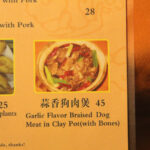Rice is a common food in many human diets, serving as a side dish or a base for various meals. If you’re a cat owner, you might wonder, “Can Cats Eat Rice?” especially if your feline friend shows interest in your plate. While rice isn’t poisonous to cats, it’s essential to understand its role in a cat’s diet. As content creators at solcat.net and specialists in feline content, we’re here to provide you with a comprehensive guide on whether rice is a suitable food for your cat.
Is Rice Safe for Cats? Understanding the Basics
Yes, cooked rice is generally considered safe for cats in small quantities. It is not toxic to them, meaning it won’t cause immediate poisoning. However, safety doesn’t equate to health benefits. Cats are obligate carnivores, meaning their nutritional needs are primarily met by meat. Unlike omnivores like dogs, cats are designed to thrive on a diet rich in animal protein and fats, with minimal carbohydrates.
While cats can digest some carbohydrates, rice offers very little nutritional value to them. In fact, excessive carbohydrate intake can be detrimental to their health.
Alt text: Curious cat gazes at a bowl of plain white rice, pondering whether rice is a suitable food for felines.
Nutritional Value of Rice for Cats: Empty Calories?
Rice is primarily composed of carbohydrates. While carbohydrates provide energy, they are not a primary energy source for cats. Cats are designed to get their energy from protein and fat. Rice lacks essential nutrients that cats need to stay healthy, such as taurine, arachidonic acid, and specific vitamins and minerals found abundantly in meat.
Consuming rice provides cats with what are often termed “empty calories.” These are calories that provide energy but lack significant nutritional benefits. A diet high in empty calories can lead to weight gain and obesity in cats, which in turn increases the risk of several serious health issues, including:
- Diabetes: Obesity is a major risk factor for diabetes in cats, as it can lead to insulin resistance.
- Arthritis: Excess weight puts stress on joints, accelerating wear and tear and contributing to arthritis.
- Heart Disease: Obesity can strain the cardiovascular system, increasing the risk of heart problems.
White Rice vs. Brown Rice for Cats: Is There a Difference?
Both white and brown rice are non-toxic to cats and can be given in small amounts. Brown rice is often considered slightly more nutritious for humans due to its higher fiber and nutrient content compared to white rice. However, for cats, the difference is minimal and doesn’t significantly change the overall impact.
- White Rice: Easily digestible but offers minimal nutritional value.
- Brown Rice: Slightly more fiber and nutrients than white rice but still primarily carbohydrates and harder for cats to digest effectively due to their digestive systems being optimized for protein.
Neither white nor brown rice provides substantial health benefits for cats, and both should be offered sparingly, if at all. Cats struggle to efficiently process the high carbohydrate load in both types of rice.
Rice for Kittens: A Definite No
Kittens have very specific nutritional requirements to support their rapid growth and development. They need a diet densely packed with nutrients, especially protein and fat, to build strong muscles, bones, and a healthy immune system.
Feeding kittens rice is strongly discouraged. Rice is essentially empty calories for them, taking up space in their diet that should be filled with nutrient-rich, kitten-specific food. Carbohydrates are difficult for kittens to process and offer very little to their growth and health. Prioritize a high-quality kitten food formulated to meet their unique developmental needs.
Rice as a Remedy for Upset Stomach in Cats? Think Twice
In dogs, a bland diet of rice and boiled chicken is sometimes recommended for mild stomach upset. However, this approach is not as effective or recommended for cats.
Cats digest rice poorly, so it won’t soothe their gastrointestinal tract in the same way it might for dogs. If your cat is experiencing vomiting, diarrhea, or other signs of stomach upset, it’s crucial to consider that these symptoms in cats are often indicative of an underlying medical issue, unlike in dogs where dietary indiscretion is a more common cause.
Frequent vomiting in cats (more than once or twice a month) is not normal and warrants a veterinary consultation. It’s essential to rule out potential medical problems, especially if vomiting is accompanied by:
- Weight loss
- Diarrhea
- Lethargy
Instead of trying rice, consult your veterinarian for appropriate advice and treatment if your cat has digestive issues.
How Much Rice Can a Cat Eat? Moderation is Key
If you still choose to give your cat rice, it should be in very limited amounts. A general guideline is less than a tablespoon of cooked, plain rice per week. It should be cooked thoroughly, with no added salt, spices, butter, or oils, as these can be harmful to cats.
Never feed your cat uncooked rice. If your cat accidentally consumes a large amount of cooked or any amount of uncooked rice, monitor them closely for potential side effects and contact your veterinarian if you observe any of the following symptoms:
- Stomach discomfort
- Vomiting
- Diarrhea
- Gas
- Bloating
- Straining to defecate in the litter box
- Lethargy
These signs could indicate digestive upset or other complications requiring veterinary attention.
Healthier Alternatives to Rice for Cats
Instead of offering rice, consider providing your cat with healthier and more species-appropriate human foods in moderation as occasional treats. Focus on meat-based options, as these align with their natural dietary needs:
- Cooked Chicken (boneless, skinless, unseasoned): A lean protein source that is easily digestible.
- Cooked Turkey (boneless, skinless, unseasoned): Similar to chicken, a good source of lean protein.
- Cooked Beef (lean, unseasoned): Another excellent source of animal protein.
- Cooked Salmon (boneless, unseasoned): Rich in omega-3 fatty acids, beneficial for coat and skin health.
- Cooked Tuna (in water, no salt added): Offer in moderation due to potential mercury content.
Always ensure any meat you offer your cat is thoroughly cooked, free of bones, skin, and seasonings, and given in small portions. Observe your cat for any adverse reactions after introducing new foods.
Final Thoughts: Rice is Not a Cat’s Best Friend
While a tiny amount of plain, cooked rice is unlikely to harm your adult cat, it offers no nutritional benefits and can contribute to health problems if given regularly or in larger quantities. Rice is essentially filler food for cats.
Prioritize a high-quality, meat-based commercial cat food as the cornerstone of your cat’s diet. If you want to offer treats, opt for small amounts of cooked meat or commercially available cat treats designed to be nutritionally balanced for felines. When in doubt about your cat’s diet or if they are showing signs of illness, always consult with your veterinarian. They are the best resource for personalized advice regarding your cat’s health and nutritional needs.


